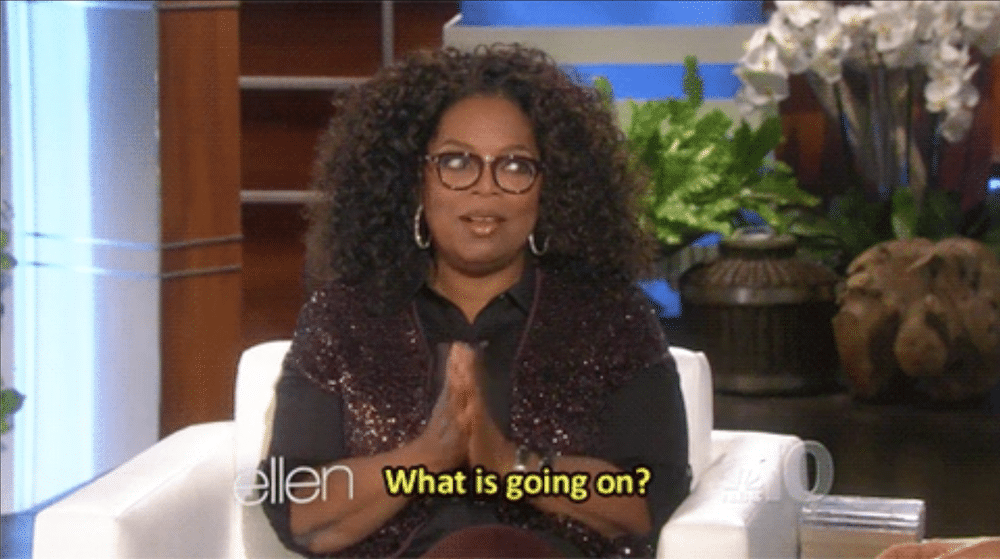
Updated 10.5.21 with survey results following our social media conversation.
You’ve seen the term womxn. Maybe even right here on this very website.
We know catchall “gender-inclusive” language is over, yet somehow, we still find ourselves using it from time to time despite its transphobic connotations (Hey Siri, play Usher’s ‘Confessions’ ✌). So, in a little organization-wide moment of vulnerability, we’d like to acknowledge that in spite of our sincere efforts to find one, there is no magical term that encapsulates the expansiveness of the gender spectrum. There’s currently no perfect word or space where transgender, gender non-binary and gender nonconforming folks feel seen, safe and welcome. When we write emails and craft captions, we still find ourselves falling back on language that masquerades as inclusive. We want to “get it right” and we don’t always do that; we’re committed to doing better. As a team, as an organization we are committed to self-reflection and change. And that means changing the words that we use and being willing to learn together.
As feminists and people who live/breathe gender justice work, each time we attempt to oversimplify our language (with the intention of including all gender minority experiences) we come up short and can inadvertently exclude the very people we’re hoping to include. So, you ask, why haven’t we stopped using womxn and started using more inclusive language? Great question!
We’ve posed the same question within our communications team and the answers we came up with were decisively murky:
1. We realize no “one size fits all” and the real work around equality and inclusivity goes way beyond language. We have to continue to dig deeper into the structure of our events, our storytelling, our mission and continually ask ourselves and our community if we’re excluding or erasing certain gender experiences.
2. We’re still learning what truly inclusive language is/can be, and as four cis women, we know we’re not qualified to make that decision (that’s how we got into the womxn mess in the first place). What we do know, in alignment with social justice movement work, is that those closest to the issue are often closest to the best solutions.
3. Sometimes we would rather have a shorter, more impactful sentence and so we use a flawed shorthand instead of listing out an as-encompassing-as-possible collection of gender expressions.
So this is where you, our beloved, diverse, unique, gender-expansive community comes in! We want to learn and take leadership from you through open conversations about your experiences. Do you feel excluded in feminist spaces? What words or terms do you feel connected to? What language puts a bad taste in your mouth?
We understand that we’re likely not going to find some perfectly calibrated language that will enable us to seamlessly welcome and connect with the kaleidoscope of genders with whom we’d like to build the feminist future. But we hope to get a little bit closer by examining where feminists have *and continue* to stumble and hold ourselves (+ our gender justice friends in community) accountable- to question, to listen, to learn, and to adapt to the ever shifting paradigm that is the human experience.
If you’ve made it this far in our confession-turned-wild-inclusivity ride (😅), we’re grateful for your time and attention. This is the beginning of what we know will be an ever evolving conversation and self-reflection around what language we’ll be using in the intersectional feminist future we are working toward.
Join us on Instagram as we explore this conversation on September 15th.
Following our Instagram convo we’ve compiled the survey results on what inclusive language is and isn’t for some of you. Our community’s thoughtful responses to our questions and eagerness to learn was validating and above all, made us feel excited to be in connection. Below you’ll find a summary of the results, be warned, there’s no clear language or catchall inclusive term that’s manifested itself for us in these results – but there is an answer that’s become apparent to us: this is a conversation people want to have and we want to continue exploring inclusivity and language with all you gentlepeople ✨stay tuned for more soon…
👋🏼WOMXN, extracurricular reading:
- what is the meaning of womxn, estimated read time 5 minutes
- using the word womxn doesn’t mean you’re trans inclusive, estimated read time 4 minutes
- why ‘womxn’ isn’t exactly the inclusive term you think it is, estimated read time 7 minutes